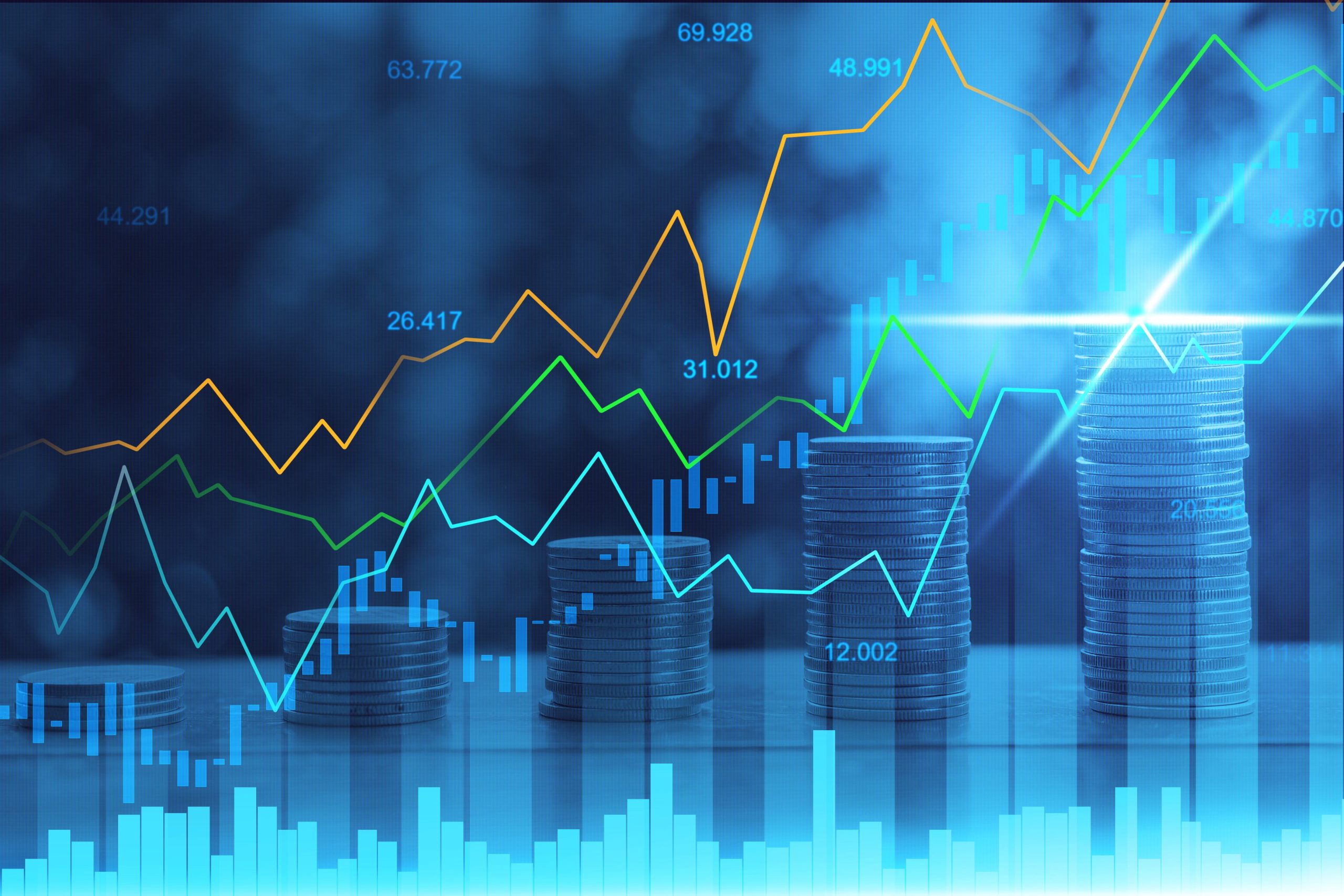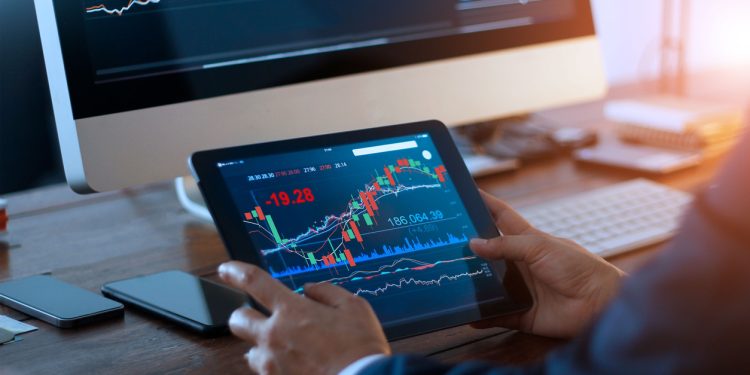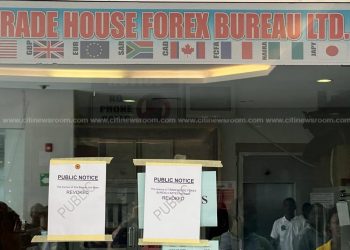You’ll often hear it said that the forex market is the most liquid financial market in the world, and indeed, it is. Liquidity refers to how active a market is, which in Online Forex Trading, is determined by the number of active traders and the volumes they are trading. We discussed this at length in our article – “The Benefits of Online Forex Trading”.
As financial centers around the world open and close throughout the day, liquidity fluctuates, having a direct and major effect on Market volatility.
Periods of volatility are inevitable in any market, and forex is no exception, which can tend to frustrate new traders; for this reason, understanding market volatility in forex, as you begin to trade, is very necessary.
You might see a currency pair’s price as high or low as it can get before buying or selling, but the very nature of volatility means that it could go up or down even further, and when you’re dealing with prices that change by the minute, timing is critical. In this article, we discuss the ways by which one can determine market volatility, as well as the five strategies that can be used both to preserve your capital, and hopefully profit from rising and falling market volatility.

Market volatility, in simple terms, refers to the price fluctuations of assets. In Forex Trading, it refers to the frequency and extent of currency price changes- either up or down. When the price of a currency pair fluctuates rapidly, widely up or down, it is said to have high volatility. On the other hand, low volatility refers to relatively stable currency pair prices, with slow or small changes in value over time. It is therefore essential to take note of how volatile a currency pair is before entering a trade. Value fluctuation of assets over time is a normal feature of every market; be it stocks or currency pairs. However, often in Online Forex Trading, price fluctuations can become a lot wilder than usual, varying greatly from its mean position, as many Traders buy and sell at different prices.
Market volatility in Forex Trading, as indicated above, is characterized by wide ranges in price, high volumes, and more trading in a particular direction. A deeper analysis of volatility – both Historical Volatility and Implied Volatility – using the most common market volatility formulae – Bollinger Bands; The VIX; Average True Range (ATR); Relative Strength Index (RSI); and established Support and Resistance Levels – further suggests that there is a higher probability of a falling market when volatility is high, while lower volatility is more common in rising markets. Experienced Traders who Invest in Forex Trading over the long term, know that given the interconnected nature of the online forex market, volatility can be experienced at any time; Smooth-Trending or Range-Bound Markets can be interrupted by sharp shocks and unwanted or unexpected periods of volatility.
Warren Buffet is quoted as having once said “Look at market fluctuations (Volatility) as your friend, rather than your enemy”. There are numerous factors that cause volatility in markets; these include sudden announcements from Central Banks, Country-Specific Economic News, Company news, unexpected production/earning results, and general market sentiments.
HOW TO HANDLE VOLATILITY IN FOREX TRADING
- Educate Yourself and Get Knowledge of Market Sentiments
The importance of Education in Forex can never be overemphasized. With Online Forex Trading, there’s ALWAYS room to improve on your knowledge. You need to do your research and constantly review your trades, both when it appears difficult and when trading seems easy.
In one of our earlier blog posts- Why Education and Training in Online Trading is A Must Before Trading Forex – we discussed at length the importance of acquiring and mastering the skill set needed for online forex trading, and how to make use of Fundamental and Technical Analyses. It’s an essential skill to master and requires a Trader to look into Market Volatility News in forex, including the various releases put out by governments, central banks, and other major players of the Forex Market. To get a head start in the market, you should keep up with market volatility news and your forex calendar, and educate yourself on how the market responds before and after news releases.
A Trader with up-to-date trading knowledge experiences relatively lesser losses by implementing better market analyses, market volatility risk measures, money management, and position sizes. You should also acquire the skills needed to gauge market sentiments, caused by psychological forces, which every Trader is faced with during the course of their Trading Day, and must endeavor to smooth it out.
- Learn to Manage your Risk and Focus on Small Trades
It’s of absolute necessity that you understand the risk involved with every trade you take. Knowing the potential returns on each trade by having a good idea of all the possible Entries and Exits, forces you to systemically visualize and compare your trades. As a Trader, you should constantly uphold certainty over risk; When market volatility is high, it is advised to reduce your leverage and position sizes. During volatile markets, you could also place smaller trades, thus committing less capital per trade.
You can also repeat trades that work for you; picking one side to trade, and trading on that side until it stops working for you. Low volatility markets, in particular, may not offer the most ideal or most profitable trading conditions, as it’s not certain which direction the market is moving in. The best thing you could do in a low-volatility market is to consider taking a pause from trading until a clear direction is seen, or until you can determine clear Range-bound conditions to utilize your range-bound strategy.
- Apply Volatility Risk Measures to Your Orders in Advance
In one of our previous articles – Facts to Know About the Most Successful Traders in Africa– we talked about how important it is to use a Stop Loss, as this is an indication of the exact amount of risk you are willing to take on a trade even before you enter it. You can also consider using Long-Term Averages to reduce the chances of a price spike when volatility is high, instead of using Moving Averages to set levels. With low-volatility markets do not expect to make huge orders; Instead, focus on small order sizes with a trading Risk-Reward ratio of about 1:1, setting your Stop Prices further from the current market price than you would in less volatile times. The goal here is to keep your overall risk exposure at par while lowering the chances of getting prematurely stopped out as a result of wider-than-normal intra-day fluctuations.
You could also consider using Limit Orders which potentially reduce your risk, by buying slightly above the market price. In effect, you’ll be buying into the trend rather than against it, thereby making the market rise a little more. Limit orders such as Take Profit, are also very important. To be successful at online Forex Trading, you should know the upside potential on your trade, and at what price you will exit when you’re in the green. This helps keep your emotions in check, thereby limiting emotional trading. You can always re-enter your trade if you get new signals to. Always remember that “It’s not the money you make (necessarily) that makes you a winning Trader; it’s the money you don’t lose”.
- Define and Stick to Your Trading Plan
A knowledgeable Trader should always plan their trades with robust risk management strategies. In our article- Common Mistakes Forex Traders Make– we also discussed at length, the importance of having a tried and tested robust well-defined trading strategy. By implication, do not jump into volatile markets unprepared, emotionally ignoring your own pre-defined market volatility risk indicators. Volatile markets can influence traders such that they abandon their trading plans, and let their emotions get the better of them. Traders feel very content at market peaks, while anxiety sets in when the market is experiencing a downtrend, leading to a possible sense of despair when plans and strategies are affected.
Keep your emotions under control; Greed, euphoria, fear, panic, and over-confidence are some of the emotions you should try to do away with. We advise you not to allow wishful thinking, also referred to as Confirmation Bias, or Recency Bias, allowing recent returns to skew your thinking. Try to recognize the emotions and cognitive biases that have the strongest impact on your personality, so you can work to reduce their effect on you and avoid letting them control your decisions.
You must have the discipline not to react impulsively to market volatility. Before you attempt to take a trade when the market is volatile, be sure you’re mentally and tactically prepared to make the risks it comes with it.
- Track the Market Closely
Traders tend to be drawn to price movements because of the potential opportunities to make bigger profits; however, there’s usually the risk of prices moving faster than they’re typically used to. Thus, when volatility is high, it becomes necessary to pay closer attention than you ordinarily would and adjust strategies accordingly.
Before you invest in a currency pair, take a close look at the way it’s been moving over the short, medium, and long term. You can use market volatility formulae such as Standard Deviation (how far a forex pair is, from the Mean), to help determine if a market is volatile or simply active. If the gap is significantly wide, it means volatility is high, and if it’s close, the market can be said to be more settled. Experienced Traders also analyze the actual position of a market against these indicators, to determine if it’s a good time to buy or sell.
CONCLUSION
By its very nature, Market Volatility presents Traders with opportunities to quickly buy and sell, hoping to make profits that could have taken them months to achieve in a more stable or less volatile market. As volatility increases, the potential to make more profit also increases; The trade-off is that higher volatility means potentially higher risk. It is possible to generate above-average profits when volatility spikes, but there’s also the risk of losing a larger amount of your trading capital in a relatively shorter period of time.
No matter the amount of education you acquire, and minimize your exposure to risk, the ultimate choice is yours, whether or not to enter a volatile market. If it doesn’t feel right, and you are not fully convinced of the possible outcome, don’t go in. If you’re just starting out as a new Trader, this might be an even stronger lesson in patience, risk management, and striving for consistent modest returns over instant huge wins.
With opportunity comes potential risk, so don’t overstretch yourself; Be measured and Invest with Confidence.
—-
Brought To You by Geldex Invest on behalf of Growell Capital















